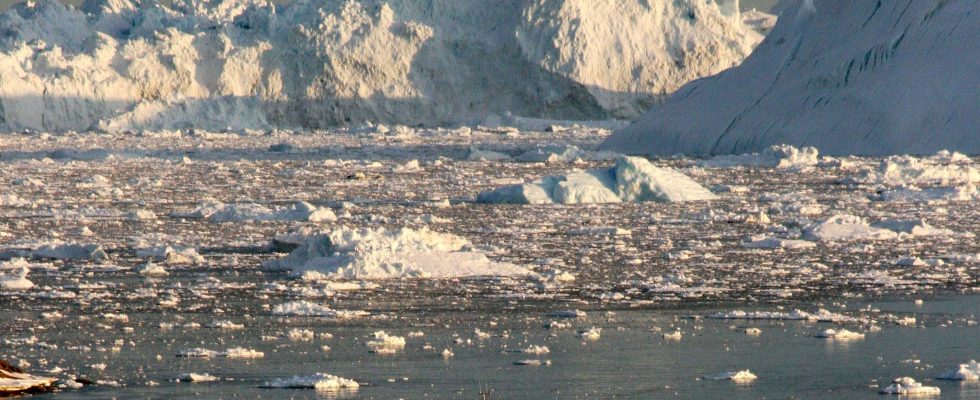THE press release from the European Commission, published on Wednesday, is rather sober, if not discreet, on the objectives of Ursula von der Leyen’s trip to northern Europe. The President of the European Commission is traveling this Thursday to Tórshavn, the capital of the Faroe Islands, where she will meet the Prime Minister, Aksel Vilhelmsson Johannesen, as well as the Danish Prime Minister, Mette Frederiksen, the European Commission said.
Ursula von der Leyen and the Prime Minister of the Faroe Islands are expected to “sign a declaration on strengthening cooperation between the EU and the Faroe Islands”. The three leaders will also meet representatives of a company aiming to cultivate algae to absorb carbon and mitigate climate change. They will also visit the facilities of a renewable energy producer.
Mette Frederiksen and Ursula von der Leyen, who is seeking a second term as president of the EU executive body, will continue their trip to Greenland on Friday, where they will meet Prime Minister Múte Bourup Egede in Nuuk. The highlights of this visit to this autonomous territory of Denmark are expected to be the signing, by the three leaders, of agreements in the fields of education and the environment, as well as the creation of an office of the European Commission in Greenland.
The strategic importance of Greenland
Although it is not part of the EU, the largest island in the world is of great interest to Brussels, particularly for its highly sought-after raw materials such as iron, zinc, lead, copper and uranium. Greenland estimates that it has 25 of the 34 that the EU needs, recalls the british newspaper The Guardian. The melting of Arctic ice, the demand for raw materials from green technologies and competition from China, Russia and the United States are increasing the strategic importance of Greenland.
These important issues are surreptitiously mentioned by the European Commission in its press release: “President von der Leyen’s visits underline the EU’s commitment to investing in a sustainable, prosperous and peaceful Arctic region.” This trip comes a few months after the European Commission signed a partnership with Greenland, in November 2023.
Questioned by the Guardian, Tomas Baert, special advisor to Ursula von der Leyen for trade and international partnerships, recalls that Greenland has rare earths and metals which it needs for its green transition. “It is extremely important to have partners capable of processing, producing and extracting these essential raw materials. But fundamentally we do it in a win-win spirit,” he told the British daily.
“We are not just looking to extract and exploit”
The 25 materials sought by the EU mean that Greenland has “enormous potential” which “we now need to make a reality”, continues this advisor. According to Tomas Baert, the EU’s approach is done with “full respect” for this autonomous territory of Denmark. “We’re not just looking to, say, extract and exploit. Others around the world are doing the same thing,” like China, he says.
According to Ursula von der Leyen’s special advisor for trade and international partnerships, this trip is also of “geopolitical” interest. The message to Greenland? “Even if you are not part of the European Union, you are part of Europe.” Nearby Guardian, Tomas Braet also welcomes Greenland’s alignment with most EU sanctions against Russia. “We really want to take our relationship [avec le Groenland] at a higher level,” he emphasizes.
This trip comes at a critical time for Denmark’s relations with Greenland, amid a growing independence movement. Outrage is also aroused by the case of the 4,500 women and girls who were allegedly fitted with IUDs without their consent or knowledge by Danish doctors in the 1960s and 1970s in order to reduce the birth rate in Greenland. A group of 143 women born in Greenland filed a complaint on March 4 against the Danish state which had discreetly organized this campaign.
